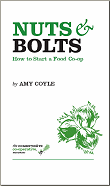Co-operatives in Local Government
The Coalition Governments’ programme included the following key proposals:-
- “We will support the creation and expansion of ... co-operatives and social enterprises and enable these groups to have much greater involvement in the running of public services”.
- “We will give public sector workers a new right to form employee-owned co-operatives and bid to take over the services they deliver. This will empower millions of public sector workers to become their own boss and help them to deliver better services”.
This article examines the mechanisms for achieving such aims and implications for local government.
Co-operatives have all party support. They operate in many areas of everyday life and, as highlighted by a forthcoming publication of the Conservative Co-operative Movement, they own and manage a wide range of enterprises.
The advantage of the co-operative approach was outlined in a Conservative Party publication prior to the general election:-
- Create a powerful new right for public sector employees similar the “Right to Request” operated within the NHS where a growing number of staff are setting up their own co-operatives or social enterprises.
- Enable shared ownership so that staff would be genuine owners of the enterprise, benefit from its financial success and vote on how the operation is run.
- Encourage innovation as the new co-operative would work with its local authority to deliver desired outcomes without the bureaucracy inevitably associated with local government decision-making.
- Allow staff co-operatives to bring in the best expertise. They could enter into joint ventures with outside organisations. This is reflected in one of the principles outlined by Lambeth Council in its plans for creating its “Co-operative council” by encouraging communities to design and deliver services. Any partners in such a joint venture could be offered a share of the revenues in exchange for management and operational expertise.
- Give staff co-ops the freedom to grow and trade through bidding for other areas of local government activity.
- There would be no profiteering as co-operatives would not operate as “management buy outs” to sell off any assets. They would be expected to make big efficiencies and improvements to services and contribute to the economic well-being in the area.
Any team within a local authority undertaking a discrete area of work will need to explore the milestones outlined in the flow chart below based in the NHS model:
The essential issues for any team will be as follows:-
- Ensuring the proposed “business” area is financially viable and has the ability to grow.
- Gaining overwhelming support from employees plus approval from the local authority which could provide “seed corn” funding.
- After preparing a robust business plan, the team should review their skills and consider harnessing skills on the board or pursuing joint venture arrangements.
- Public procurement may be an issue although many frontline public services do not require the full advertising regime reflecting practice in the NHS.
- All staff would transfer with their existing terms and conditions under the TUPE Regulations and they could be an “admitted body” within the Local Government Pension Scheme.
- The parties will sign detailed contract documents containing details of outcomes and the aspirations.
David Cameron has suggested that the formation of co-operatives to run local government services could be described as “one of the most significant shifts in power since the right to buy legislation”. It is an initiative supported by DCLG which will be locally-led rather than imposed by government.
The opportunity for employees to create and own their co-operatives could immeasurably enhance the public services managed by them.
Simon Randall
Consultant
Winckworth Sherwood



